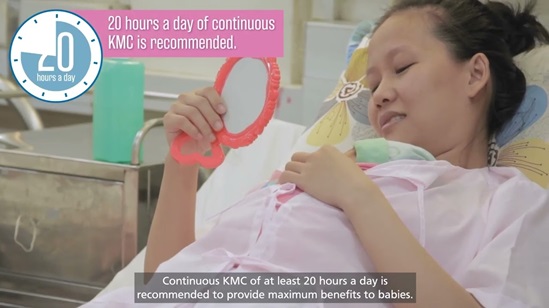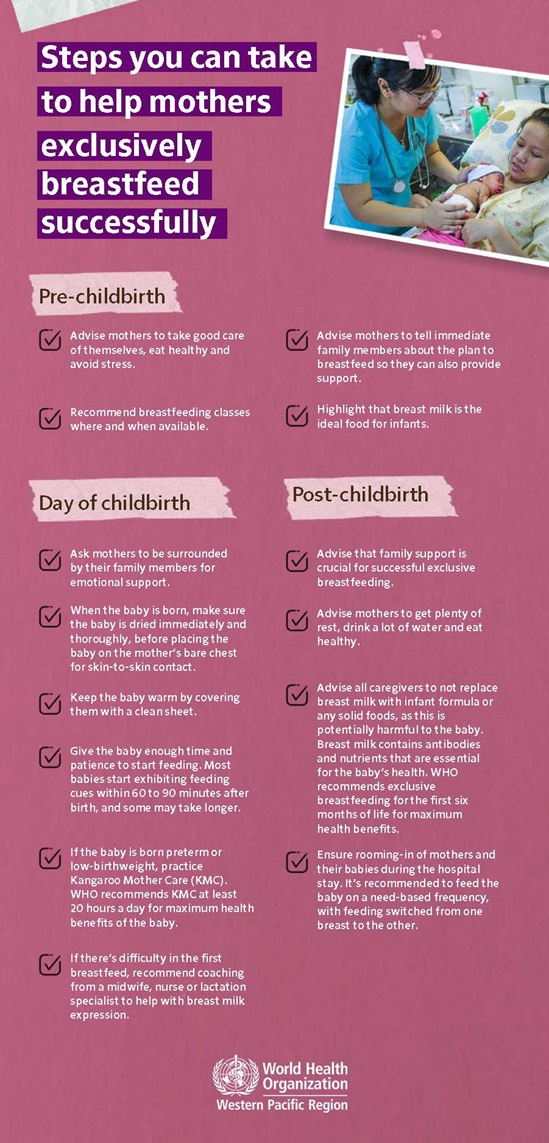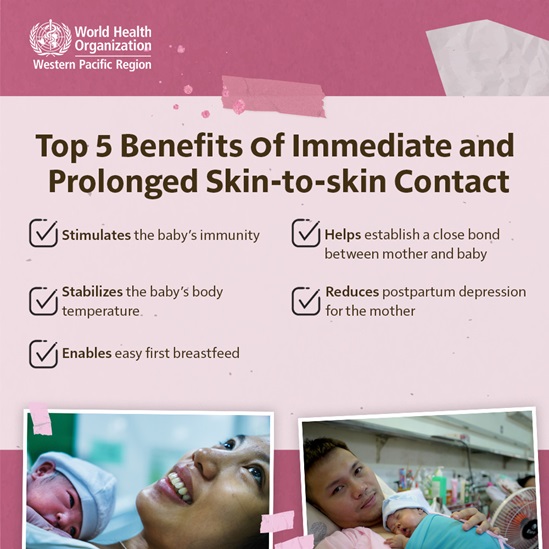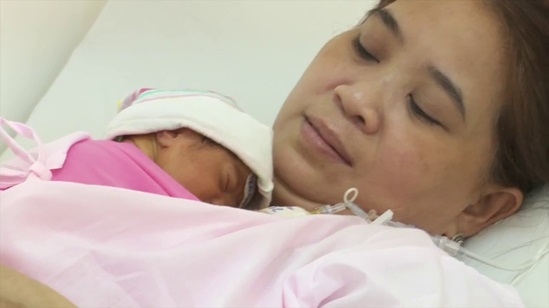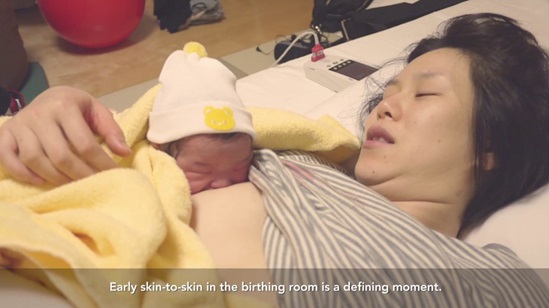Direct skin-to-skin contact between mother and newborn baby in Dr Jose Fabella Memorial Hospital.
Scaling up Early Essential Newborn Care
Every newborn infant has the right to a healthy start in life. But in the Western Pacific Region, one newborn dies every 4 minutes – largely due to inappropriate clinical practices at the time of birth. These newborn deaths can be prevented through a very simple solution: Early Essential Newborn Care (EENC). EENC is a set of simple, cost-effective interventions that benefit all mothers and newborns. At its core is First Embrace, a life-saving practice that promotes skin-to-skin contact between mother and child immediately after birth.
Babies cuddled in skin-to-skin contact become calm, pink and alert. All babies benefit including those preterm, sick or born by caesarean section. Aside from the natural bond it fosters, First Embrace helps transfer warmth, placental blood and protective bacteria. Through colostrum or “first milk” from the first breastfeeding, essential nutrients, antibodies and immune cells are transferred from mothers to their babies to protect them from infection. For mothers, First Embrace reduces the risk of haemorrhage, reduces pain, promotes early and successful breastfeeding and improves well-being.
The components of the First Embrace are:
- Drying the baby immediately and thoroughly after birth;
- Immediate skin-to-skin contact between mother and baby for no less than 90 minutes;
- Clamping the cord after pulsations stop, cutting the cord with a sterile instrument;
- Initiating exclusive breastfeeding when cues occur (such as drooling, tonguing, rooting, biting hand)
Improving birth care
EENC includes interventions delivered to the mother in the second stage of labour and after delivery which improves both maternal and newborn outcomes including:
- Ensuring the presence of a birth companion
- Adopting a position of choice
- Providing adequate food and fluids
- Using evidence-based criteria for episiotomy, and other procedures
- Eliminating harmful or unnecessary practices such as fundal pressure, forced pushing, and enema
- Administering oxytocin within 1 minute of birth
EENC has been introduced in 29 countries in four regions and more than 10 million babies and mothers have been reached with improved care. WHO, with the support of Ministries of Health, hospitals, health professionals, and development partners, is continuing to work to ensure a healthy start for all newborns.











